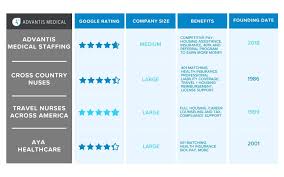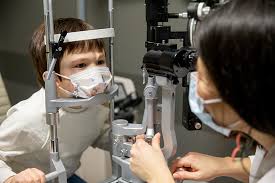
Unlocking Potential: Empowering Lives through Rehabilitation Programs
Rehabilitation Programs: A Path to Recovery and Renewal
Rehabilitation programs play a vital role in helping individuals regain their physical, mental, and emotional well-being after experiencing a setback or injury. Whether recovering from surgery, managing chronic conditions, or overcoming addiction, these programs provide comprehensive support and guidance to facilitate a successful recovery journey.
The Importance of Rehabilitation
Rehabilitation is not just about healing the body; it encompasses the entire person. It focuses on restoring functionality, independence, and overall quality of life. By addressing physical limitations, cognitive challenges, emotional well-being, and social reintegration, rehabilitation programs empower individuals to regain control over their lives.
These programs are designed by multidisciplinary teams of healthcare professionals who specialize in various fields such as physical therapy, occupational therapy, speech therapy, psychology, and more. They collaborate closely to develop personalized treatment plans tailored to each individual’s unique needs.
A Holistic Approach
Rehabilitation programs take a holistic approach to recovery by considering all aspects of an individual’s well-being. Physical rehabilitation focuses on improving strength, flexibility, coordination, and mobility through targeted exercises and therapies.
Mental health support is equally important during the recovery process. Psychological counseling helps individuals cope with emotional challenges such as anxiety or depression that may arise due to their condition or circumstances. Additionally, cognitive rehabilitation assists in rebuilding cognitive skills such as memory and problem-solving abilities.
Social integration is another crucial aspect addressed by rehabilitation programs. They provide opportunities for individuals to engage with others facing similar challenges through support groups or group therapy sessions. This fosters a sense of community and belonging, reducing feelings of isolation and promoting emotional well-being.
Types of Rehabilitation Programs
Rehabilitation programs cater to a wide range of conditions and needs. Some common types include:
- Physical Rehabilitation: Focuses on restoring physical function, mobility, and strength after surgery, injury, or illness.
- Cardiac Rehabilitation: Aims to improve heart health and reduce the risk of future cardiac events through exercise, education, and lifestyle changes.
- Substance Abuse Rehabilitation: Provides support and therapy for individuals struggling with addiction to regain control over their lives.
- Mental Health Rehabilitation: Helps individuals with mental health conditions develop coping strategies, life skills, and social support networks for successful reintegration into society.
The Benefits of Rehabilitation Programs
The benefits of rehabilitation programs extend far beyond physical recovery. They empower individuals to reclaim their lives by:
- Gaining independence and self-confidence
- Improving overall quality of life
- Promoting emotional well-being
- Fostering social connections and support networks
- Reducing the risk of future complications or relapse
In conclusion, rehabilitation programs offer a comprehensive approach to recovery that addresses the diverse needs of individuals. By combining medical expertise with personalized care, these programs provide a path to renewal and a brighter future. If you or your loved ones are in need of rehabilitation services, reach out to professionals who can guide you towards the appropriate program for your specific needs. Remember, recovery is possible with the right support!
Six Key Strategies for Effective Rehabilitation Programs: Goal-Setting to Support Networks
- 1. Set clear goals
- 2. Individualized approach
- 3. Multidisciplinary team
- 4. Regular assessment
- 5. Holistic approach
- 6. Support network
1. Set clear goals
Setting clear goals is a crucial tip when it comes to rehabilitation programs. By defining specific and measurable objectives, individuals can stay focused and motivated throughout their recovery journey. Clear goals provide a sense of direction and purpose, guiding individuals towards tangible milestones. Whether it’s regaining strength, improving mobility, or achieving emotional well-being, setting clear goals allows individuals to track their progress and celebrate their achievements along the way. Moreover, clear goals help healthcare professionals tailor treatment plans and interventions that align with the individual’s aspirations, increasing the chances of successful rehabilitation outcomes.
2. Individualized approach
One crucial tip in rehabilitation programs is the implementation of an individualized approach. Recognizing that every person’s journey to recovery is unique, rehabilitation programs tailor their interventions and treatments to meet the specific needs and goals of each individual. By taking into account factors such as the person’s medical history, current condition, personal preferences, and lifestyle, an individualized approach ensures that the rehabilitation program is personalized and maximizes the chances of success. This approach allows healthcare professionals to provide targeted therapies, exercises, and support that address the specific challenges faced by each individual, promoting a more effective and efficient recovery process.
3. Multidisciplinary team
One key tip for effective rehabilitation programs is the utilization of a multidisciplinary team. A multidisciplinary team consists of healthcare professionals from various disciplines who collaborate to provide comprehensive care and support to individuals undergoing rehabilitation. This team approach ensures that all aspects of an individual’s recovery are addressed, including physical, psychological, and social needs. By combining the expertise and perspectives of different professionals such as physical therapists, occupational therapists, psychologists, and social workers, a multidisciplinary team can tailor treatment plans to meet each individual’s unique requirements. This holistic approach enhances the effectiveness of rehabilitation programs and promotes successful outcomes for patients on their path to recovery.
4. Regular assessment
Regular assessment is a crucial aspect of rehabilitation programs. By conducting frequent evaluations, healthcare professionals can track the progress of individuals and make necessary adjustments to their treatment plans. These assessments help identify any areas that require additional attention or modifications, ensuring that the rehabilitation program remains effective and tailored to the individual’s evolving needs. Regular assessment also provides an opportunity for individuals to actively participate in their own recovery by setting goals and monitoring their achievements. With regular evaluation, rehabilitation programs can optimize outcomes and provide individuals with the best possible chance for a successful recovery journey.
5. Holistic approach
A holistic approach is a key aspect of rehabilitation programs. By considering the physical, mental, emotional, and social well-being of individuals, these programs address the entirety of their needs. Rather than solely focusing on physical recovery, a holistic approach recognizes that healing encompasses various aspects of a person’s life. It emphasizes the importance of integrating therapies and support systems that promote overall wellness and enable individuals to regain control over their lives. This comprehensive approach ensures that rehabilitation programs not only restore functionality but also empower individuals to thrive in all aspects of their well-being.
6. Support network
One crucial aspect of rehabilitation programs is the establishment of a strong support network. Having a support system in place can make a significant difference in an individual’s recovery journey. Whether it’s family members, friends, or fellow participants in the program, having people who understand and empathize with the challenges can provide emotional encouragement and motivation. A support network offers a safe space to share experiences, seek advice, and receive encouragement during difficult times. By surrounding oneself with positive and understanding individuals, the path to recovery becomes less daunting and more manageable.


